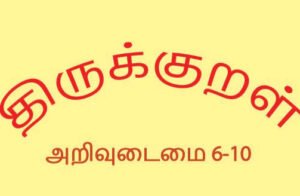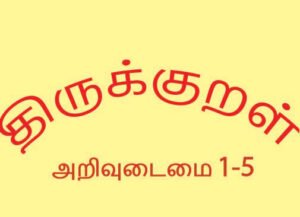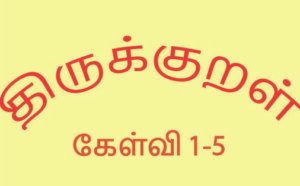Sankranti / Pongal
In the middle of this month, in January, falls another very popular and auspicious festival that is celebrated all over India. As with most other festivals, there are regional variations, but all these celebrations are centered on the sun. The festival is, of course, Makar Sankranti!
Sankranti marks the migration of the sun from one zodiac sign to the next. There are twelve Sankrantis in a year. When the sun transitions to Capricorn or Makara, it is celebrated as Makar Sankranti. As the festival follows the movement of the sun, it falls on the same day every year (except in the leap year), that is, on the 14th of January. In leap years, Makara Sankranti falls on the 15th of January.
According to the Hindu calendar, this is also the beginning of Uttarayana, the end of the winter solstice, leading to longer days.
Makar Sankranti is a harvest festival dedicated to the worship of the sun. India has a year-round growing season, thanks to the monsoons and the warm tropical climate. Makar Sankranti marks the beginning of a new harvest season. Markets are flooded with freshly harvested rice, sugar cane, turmeric, green peas, and pumpkins.
The days before and after Makar Sankranti are also important.
The festival is celebrated as Makar Sankranti in Maharashtra, Andhra Pradesh, Telangana, Madhya Pradesh, Karnataka, Odisha, Goa, and Bihar.
In Assam, it is celebrated as Magh Bihu,
In Tamil Nadu, it is known as Thai Pongal
In Kerala, it is Makara Jyothi or Makara Vilakku,
Uttarayan in Gujarat
Poush Sankranti in West Bengal and
Magh in Punjab and Himachal Pradesh, and Kicheri in Uttar Pradesh.
Many states celebrate the day before Sankranti as well. Known as Bhogi in the south, Lohri in Punjab, the day is marked by cleaning and painting the homes, decorating the outside with rangoli or kolam, lighting bonfires, and dancing. In Tamil Nadu, women and children dance the Kummi, with the clapping of hands, similar to Garba.
In Andhra Pradesh, there is a tradition called Bhogi Pallu. Puffed rice or rice crispies are mixed with fresh berries, coins, flowers, Bengal gram, and rice. In the evening, Children 5 and under sit in the middle, and the adults pour a handful of the Bhogi Pallu on their heads.
In Punjab, people light bonfires on Lohri. They offer sesame seeds, popcorn, and peanuts to the fire. There is also a lot of dancing; both Bhangra and Giddha are performed.
In Assam, the eve of Magh Bihu is celebrated as Urukka. People build a traditional bonfire known as Meji. What’s different is that, unlike other states with bonfires, the Assamese don’t light it until the morning after. They sing Bihu songs accompanied by the dhol, and there is also a community feast! What a wonderful way to bring everyone together!
On Makar Sankranti, on the 14th of January, people bathe in rivers and ponds, offer prayers to the sun, and visit family and friends.
As it is a harvest festival, it is no wonder that delicious food is central to this celebration. On this day, newly harvested rice is cooked with milk, ghee, and jaggery to make a sweet kichdi or Pongal. Another important sweet is the sesame and jaggery balls. There is an interesting symbolism behind these till laddoos. When people exchange the till laddoos, they share the wish that “even as we are different people, let us be bound together.” It is very important for our country to remember this, don’t you agree?
In Maharashtra, new pots are filled with pieces of sugarcane, wild berries, fresh green gram, and jaggery. These pots are given as tokens to others. It is customary to exchange turmeric and vermillion, along with til laddoos. Oh, Puran poli is a must for the Makar Sankranti feast.
In Gujarat, it is celebrated as Uttarayan, marked by one of the biggest kite festivals in the world. People make kites at home as well as buy them from the markets. In fact, Ahmedabad has a market dedicated to kites-the Patang Bazaar. Have you ever had Undhiu? It is a delicious mix of beans and yam made on this occasion.
In Assam, the Meji or the bonfire is lit in the morning of Bihu. Many traditional sports are held on this day. Let’s come to the food! Rice cakes known as pithas are a specialty on this day. Not only are these to eat, but they are also offered to the bonfire.
In Andhra Pradesh, Makar Sankranti is also called as Peddha Panduga, meaning the big or grand festival. People take an early morning bath, cook freshly harvested rice, and decorate their front yards with rangoli or muggulu. You’ll definitely find pumpkin in the dishes this day!
In Uttar Pradesh and Bihar, the local name is Kichdi. They came straight to the point! Why not? Harvests are all about food! The delicacies are chura or poha. Ritual bathing is very important in these states.
If you have a temple dedicated to the sun god, then you know the state is going to celebrate Makar Sankranti on a grand scale. I’m talking about Odisha and the Konarak temple, of course!
Tamil Nadu celebrates Makar Sankranti as Thai Pongal. It is a four-day festival and is the most important festival. The first day is Bhogi, which we talked about earlier.
The second day is Thai Pongal. Families cook Pongal ( a sweet dish made with rice, milk, jaggery, and ghee) outdoors, under the sun. People wear new clothes after the ceremonial bath. They decorate new earthenware pots, tie freshly harvested turmeric plants around the neck, and cook the Pongal in outdoor community gatherings. Traditionally, the Pongal has to overflow while cooking, and people cheer loudly, saying, “Pongalo Pongal.” Pongal actually means to overflow. The symbolism behind this greeting is that our lives should overflow with bounties and happy events. Venn Pongal, which is the saltier version, is made with rice, lentils, and ghee and is accompanied by pumpkin sambhar. You will see that the markets are filled with sugar cane. Have you ever chewed on one of those pieces? The juice is oh-so-sweet, but those strands stuck in your teeth can be oh-so annoying!
The third day is Mattupongal, or the day to worship cattle. In agricultural communities, the cows are bathed, decorated, and given food. Some towns host Jallikattu or bullfighting. This is a highly controversial celebration right now, with animal rights groups opposing the use of animals for sport. The people for Jallikattu dispute that the animals are mistreated and oppose the restriction of their rights to follow their cultural practices.
The fourth and last day is Kaanum Pongal. Kaanum means to see or visit. On this day, families make several rice dishes and visit each other. If you ever go to Marina Beach in Chennai on Kaanum Pongal, I doubt if you’ll find a place to stand! It is that crowded on the beach!
On this day, let us thank the sun for the light and warmth and the farmer and his and her cattle for feeding the nation with the bounty from their hard work. May we lead fulfilling lives overflowing with happiness. Pongalo Pongal!
Click here to read more on Sankranti:
Click here to listen to more on the festivals of India:
Magh Bihu: The Great Vegetable Robbery





